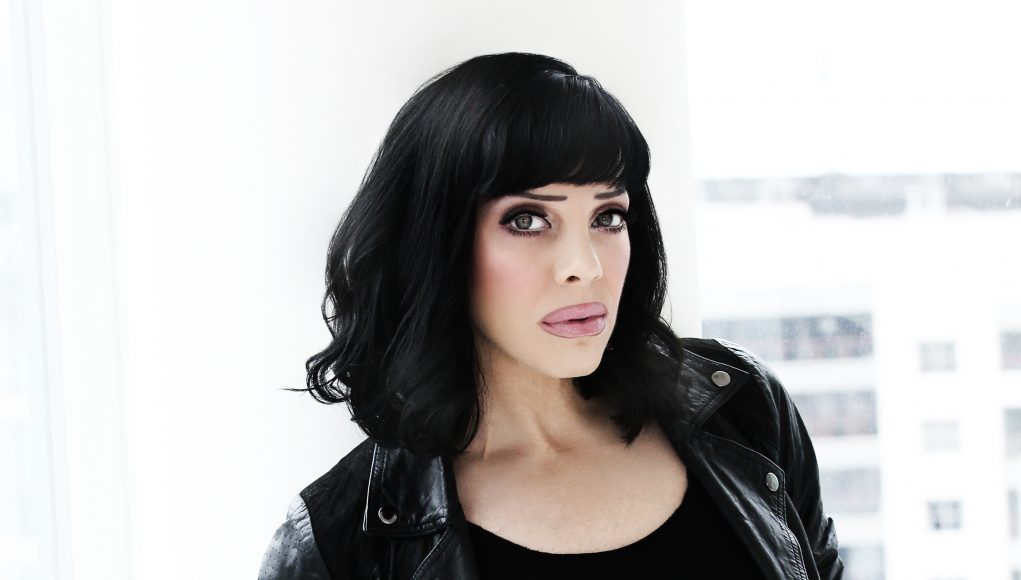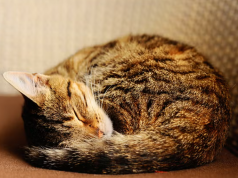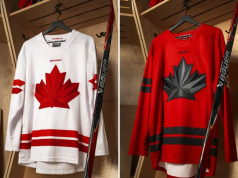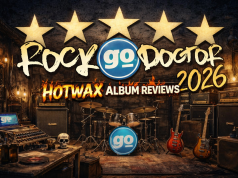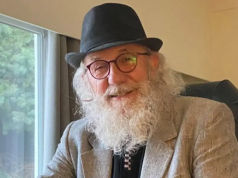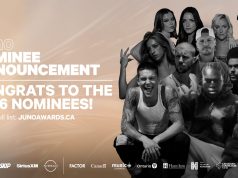Bif Naked has pushed the boundaries of acceptability since the beginning. Her creative spirit has never been muzzled, making Bif Naked one of the most acclaimed and interesting performers to grace the rock stage.
How did you come up with your name?
Bif has been my nickname since the 8th grade. Bif Naked was the stage name I’ve had since I was 18, when I did my first show. Unfortunately, a lot of people thought Bif was a guy. Then when they found out I was a girl, and they saw the name Naked, they all thought I was a porn star. Somehow I weathered those storms.
How long have you been involved in the music industry?
Almost 30 years and had the same manager for 25. I’ve been very lucky, it’s been great.
When you first started, what sort of challenges did you face? There probably weren’t many female punk rock artists 30 years ago!
We had to know how to fight. As a female, I found that my number one asset, and maybe this is true for just about any career, was to never take things personally. Sexism in the music business is rampant. Almost every time I’d perform, people would yell “show us your tits” and all kind of other things. I had to learn to let it roll off my back; the show must go on. You can’t stop your show and take this person to task.
I also stopped drinking when I was 24. I felt that I was treated with disrespect if I was having a beer so I embraced this movement at the time called Straight Edge, which, in the punk rock community, was a bit of a political statement in a way. Henry Rollins and some of our heroes were Straight Edge, so we embraced that.
What can people expect when they come to your show?
They will have a good time. I will tease my husband, the guitar player, throughout the whole show. I like to ask him crazy questions, because his reactions make me laugh. It’s fun to watch his face – I love to embarrass him.
The format is basically an acoustic concert and a book reading. We will perform songs that go with some of the stories in the book. I talk about some of the truths and secrets behind the stories themselves and the songs that were written as a result.
You’ll have books for sale?
Yes, and audience members can also bring their books from home. I’ve seen them on sale at London Drugs and Chapters, as well as on Amazon.
Tell me a bit about the book
Since I didn’t croak after my cancer treatment and heart surgery, I was harassed into writing a memoir. I don’t know how writers find the time to write. At the time I was trying to write the book I had a really sick 17 year old dog and was going through a divorce, so it was almost impossible to concentrate on sitting down and writing. That’s when I decided to go and hide in France, where my manager and his wife were living, to find the time to write.
You would think writing a memoir would be easy – all you’re doing is recalling your own stories from childhood. But revisiting a lot of those painful stories was much harder than I thought, even though I had written songs about some of these subjects. Writing the actual facts, getting down to the meat of the story, was a little triggering and took more time than I thought.
When I had completed the manuscript, I went to Harper Collins and started working with an editor named Jim Gifford. He had to read every single word so we could narrow things down and decide on what we were keeping. I probably submitted 200,000 words to this poor man and we settled on 50. Jim is a saint. He had to wade through the garbage that I wrote.
In writing the book, I mostly wanted to honour my parents. My dad was still alive when we were going through the manuscript, and having the opportunity to read it to him at his bedside, when he was in palliative care, was a true gift. He would fall asleep, because of being sedated much of time. When he would wake up and I was sitting there, he would start laughing and say “oh, no, your book isn’t boring!”. He was always making jokes. Nothing will compare to that.
You mentioned you had breast cancer. How many years ago was this?
I was diagnosed with breast cancer in 2007. Anyone who’s been in treatment knows that the day you’re diagnosed doesn’t mean that’s the day you start treatment. For me it was about 6 weeks later I had surgery. After that I started chemotherapy, which was another 6 months, then radiation, and of course there’s the residual side effects and having to manage those side effects.
After that, I had my ovaries taken out. Three weeks later I went on tour. We put out a record then had to go on tour to support that record. I made the record during chemo, because it was the only time I’d ever be home. I did 300 shows a year, for 18 years.
I like to thank God that I got breast cancer, because it made me take a vacation, something I’d never done before. I didn’t even care that it was in a chemo chair, at least I got to sit down. I had also just gotten married 3 weeks before I was diagnosed, to my second husband. They say cancer reveals all – people either show up or they step away from a cancer patient. My marriage did not last as long as my cancer did. Compared to that marriage, cancer was a breeze.
What did you learn about yourself during your cancer treatment? Did you have any big “a-ha” moments about yourself?
Sometimes the epiphany with cancer is that there isn’t one. I did became a full time volunteer when I was in treatment, primarily because I kept getting asked to meet a new patient, because they knew who I was and, like a lot of women, I’m the person that never says no.
What I discovered was that I really loved meeting with other patients. I started volunteering with some of the cancer patients that had entered palliative care, which I realized was my passion. I loved working in that environment, I loved being with patients and families. I thought “man, I should have gone into nursing! If I turned around tomorrow and got a straight job, I would go into nursing or hospital administration”.
Tell me a bit about the humanitarian efforts that you’re involved with
An organization I got involved with is Raise the Rates. Every year there’s a challenge where those of us not currently on social assistance will live only on $21 a week for food. This is the equivalent of what a welfare recipient in British Columbia gets, after their bus pass, rent, and other expenses are gone.
We take tv stations with us when we get groceries, showing what we can buy (which is limited). Hopefully in raising this kind of awareness, people will remember we’re trying to get the rates changed in BC when voting time rolls around. People struggle all the time, and it’s easy to forget that.
What is your favourite place to travel?
That’s a great question. It’s honestly Newfoundland. I’ve been everywhere in this world, and Newfoundland is the most magical place I’ve ever been. It’s unbelievable. I’ve never been anywhere like it. I can’t even describe or explain it. It’s the most interesting place. My first time there, it felt like I could finally breathe.


